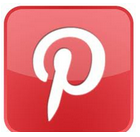8 Strategies for Pinterest for Businesses
Pinterest has become a running joke to many. Still, the traffic reported coming from this site cannot be ignored, and the ways people are leveraging its popularity to market their businesses is very interesting.Here are just a few.
1. It’s not about you
You don’t need to be blatant about what you offer your customers. Be subtle. Post pins that are interesting and tangentially related to your product. Best example? Oreck on Pinterest. They barely mention vacuum cleaners or air filters but when you visit their page and see all the pins you can’t help but think of them.
2. Everybody loves a story
Nordstrom has quite a few fashion boards, including this one from New York Fashion week. Notice that the photos are from fashion week backstage, but the photos link to the products in the shop on their website. Users love the backstage glimpse of Fashion Week, and then end up on the Nordstrom shop pages.What stories does your market love to hear about?
3. Have one board that’s pure showoff
You don’t have to bury your brand identity to do a good job on Pinterest. Go ahead and show off a little. Here’s a good example of a brand page for Vineyard Brands, a wine importer on Pinterest. Notice how they appeal to the fun, crafty side of people with their boards, and they also have a board for press on the wines in their portfolio. After people browse the other boards they’ll explore this one too.
4. Reach for the sweet spot
Food is one of the most shared topics on Pinterest, often the more decadent the better, still not everybody wants decadence all the time. Take The Mother Company for example. They are all about the social and emotional issues of raising young kids. Of course food plays a big role and on their board “Sometimes Food”. they explain that while you can’t eat these goodies all the time, once in awhile it’s OK to splurge a little. They balance this page with healthy snacks the kids will still love but with a healthier attitude called “Kid Friendly Food“.
5. Give away the good stuff
If your job revolves around sharing information, then share great links to resources your clients will love. Here’s a great example of this from entrepreneur Alyssa Gregory. Her small business resource boards are a great model to follow for any service business. Alyssa knows you can’t give away too much information. If people like what you say they’ll come to you for more focused information for their business.
6. Collaborate
You don’t have to do it alone, in fact, if you know a bunch of people who share good information, why not leverage your networks and share information together? Letting others posts to your board takes the pressure off one individual and allows everyone who contributes to benefit when everybody posts. Win win. Here’s a collaborative board I participate on with some of my social media pals pinning infographics, created by Mark Ivey. And here’s another collaborative board from Thirsty Girl and their fans “Share a Glass” with 190 pins related to wine and other tasty beverages.
7. Use Pinterest as a focus group
Just look at what West Elm is doing with their Pinterest pages. They have several boards focused around design, colors and landscaping. You can bet they are watching these closely to see what’s shared most and what isn’t, what gets collected on other boards and what the content on those boards tells them about their market. What do you want to know about? Ask it in videos and pictures on Pinterest.
8. Don’t be all business
Like in the case of Oreck, this is not about the widget you sell, it’s about the mindset of the person who might be interested in it and also to show a bit of the human side of the company. Be funny. Be inspirational. Whatever suits your corporate culture. Whole Foods has boards about food, strength, recycling, gadgets and even buildings. It’s about the culture around what they sell.





